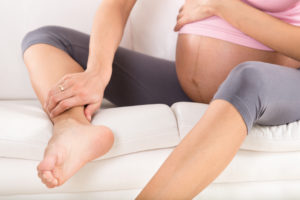Are you having your first pregnancy? Here are some of the most common health conditions experienced by mothers!
Urinary Tract Infections
Urinary tract infections can occur to anyone but it is more common in pregnant women. UTIs are caused by bacteria that are found naturally on the skin surface or from stools that enter the urinary tract system. Pregnant women have an increased risk of UTIs as hormone changes can cause changes in the urinary tract and stagnant urine in the bladder due to incomplete emptying of urine. Symptoms of UTIs includes frequent urination, experiencing difficulty and/or a burning sensation during urination and cloudy urine. UTIs need to be treated ASAP to prevent kidney infection or premature labour.
Tips to avoid UTIs are :
- Change feminine pads often
- Do not douche
- Wipe yourself from front to back
- Wash the intimate area with warm water before & after sex
- Avoid the use of soaps
- Wear cotton underwear
Vaginal Discharge
Pregnant women may experience vaginal discharge of mild-smelling, thin and milky white which also known as leukorrhea. The lining of the vagina too will be thicker and less sensitive. During pregnancy, the increased production of estrogen increases the production of the body’s mucous membrane during pregnancy. This discharge functions to prevent infection to the birth canal and keeps the cervix sealed and healthy. However, if the discharge has a weird color and/or funny odor, it could be a yeast infection. Here are some tips to prevent infection:
- Reduce sugar intake
- Change underwear frequently
- Go commando
- Do not douche
- Wear pads or panty liners to absorb the discharge, but change them regularly
Skin Itchiness
Itching can be due to pregnancy hormones such as an increase in estrogen and stretching of the skin. The abdomen, palms and soles of the feet are common spots of the itchiness among the pregnant women. Eczema is another possible source of itchiness; where eczema could get worse or better during pregnancy. However if severe itching of the hand and feet is also accompanied by symptoms such as dark-coloured urine, light-coloured bowel movement, loss of appetite, nausea and fatigue, it could be cholestasis which needs to be treated by doctor. Some tips to reduce the itchiness are:
- Use gentle soaps (not on the intimate region, warm water is sufficient)
- Apply moisturizing cream and lotions daily
- Do not take hot showers as this will strip moisture away from the skin
- Do not wear tight clothing
- Take an oatmeal bath
Swelling
Swelling is also known as edema due to additional blood and fluid that occur in the legs, ankles, feet and face. Increasing blood flow and pressure of the growing uterus on the pelvic veins and vena cava causes edema. To nurture both the mother and the baby, the body fluids increased and accumulate in the tissues.Some tips to reduce swelling are:
- Elevate your feet when resting
- Rest or swim in a pool
- Do not stand for too long
- To reduce swollen areas, use a cold compressor
- Reduce salt intake
- Drink more water
Hemorrhoids
Hemorrhoids are also known as varicose veins or piles. It can be painful and uncomfortable but they are common and harmless. The swelling of the veins in the rectal wall is due to pressure from the enlarging uterus which increases blood flow to pelvic area. Constipation can worsen hemorrhoids as the extra straining causes pressure on the vein. Hemorrhoids can be treated and normally go away after delivery. Here are some tips that might help the condition:
- Drink plenty of water
- Increase intake of fiber-rich foods such as leafy vegetables and fruits to avoid constipation
- Do not force or strain the bowel movement
- Use ice packs or witch hazel to reduce the pain
- Use topical creams and ointments
- Be physically active or try Kegel exercise
Heartburn
Pregnancy hormones causes muscles in the body that break down food to relax which lengthens the time that food remains in the body. This increases the time for the body to absorb nutrients. This causes pregnant women to feel bloated with a burning sensation in the chest. It becomes more common as an enlarged uterus causes pressure on the stomach. The valve between the stomach and esophagus also more relaxed due to hormonal changes, allowing for the backwash of acids from the stomach up the esophagus. Some tips to reduce this condition are:
- Eat small meals frequently throughout the day instead of 3 large main meals
- After meals, wait an hour before lying down
- Drink fluids between meals instead of with meals together
- Do not eat spicy, greasy and fried foods
- Consume a glass of milk or yoghurt to ease the heartburn sensation







